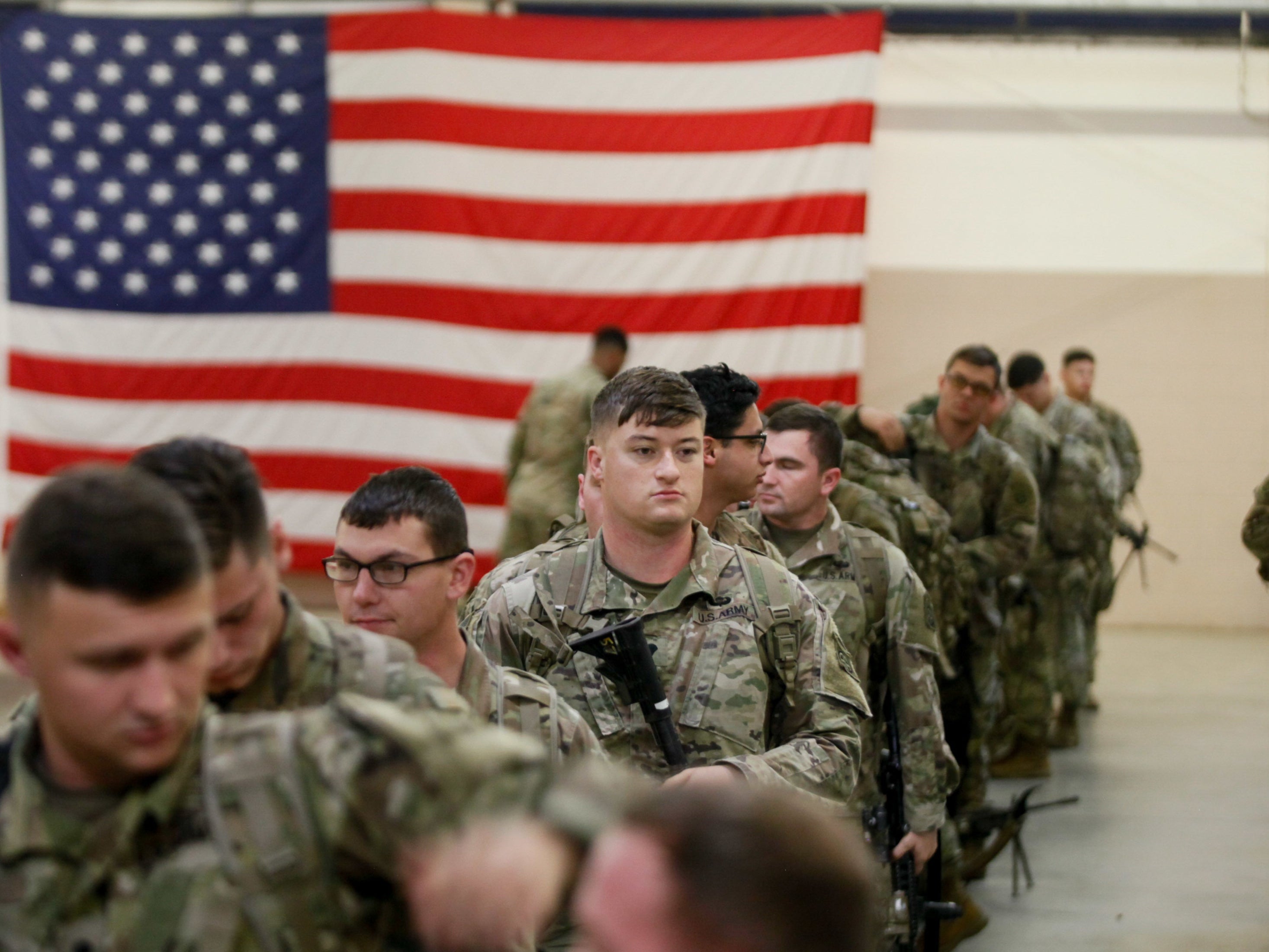Biden announces Kathleen Hicks as deputy defense secretary in first female appointment to role
She previously held top defense positions under the Obama administration

Your support helps us to tell the story
From reproductive rights to climate change to Big Tech, The Independent is on the ground when the story is developing. Whether it's investigating the financials of Elon Musk's pro-Trump PAC or producing our latest documentary, 'The A Word', which shines a light on the American women fighting for reproductive rights, we know how important it is to parse out the facts from the messaging.
At such a critical moment in US history, we need reporters on the ground. Your donation allows us to keep sending journalists to speak to both sides of the story.
The Independent is trusted by Americans across the entire political spectrum. And unlike many other quality news outlets, we choose not to lock Americans out of our reporting and analysis with paywalls. We believe quality journalism should be available to everyone, paid for by those who can afford it.
Your support makes all the difference.The Biden administration announced on Wednesday it would nominate Kathleen Hicks, an Obama-era defense official, to be deputy secretary of defense, the nation’s second highest role inside the Pentagon. If confirmed, she’d be the first woman to hold the position, and she would join a cabinet that is only partially breaking with some of the most controversial decisions of its recent predessors.
During the Obama years, Ms Hicks served in roles including as principal deputy undersecretary of defense for policy, and undersecretary of defense for strategy, plans, and forces. She’s currently serving on the Biden transition team, and is director of the international security program at the Center for Strategic and International Studies.
In a statement announcing the selection, the Biden administration praised Ms Hicks for having ““the broad experience and crisis-tested judgment necessary to help tackle the litany of challenges we face today, and all those we may confront tomorrow.”
If Mr Biden’s other nominees are confirmed, she would serve under his pick for defense secretary, retired general Lloyd Austin, who is currently seeking a waiver from Congress to hold the position. By law, defense secretaries need to have left military service for 7 years before taking on the top job at the Pentagon. Mr Austin retired in 2016, and Congress may be wary of granting another waiver, after it provided the Trump administration a similar go-ahead for defense secretary James Mattis.
It’s not the only defense-related controversy hovering around Mr Biden’s picks for his top cabinet advisers.
The Biden campaign promised a number of breaks with past defense policy — protecting undocumented service members, rolling back the Trump administration’s travel bans, ending its support for the war in Yemen, emphasizing diplomacy and international alliance, and bringing to an end “forever wars in Afghanistan and the Middle East, which have cost us untold blood and treasure.”
Still, it’s been more reserved when it comes to the most controversial aspects of defense policy under the Obama and Trump administrations: drone strikes and Guantánamo Bay.
Mr Biden’s pick for director of national intelligence, Avril D. Haines, was one of the architects of the Obama-Biden administration’s controversial drone war, which killed hundreds of civilians in addition to the terrorists it targeted, and marked a tenfold increase in the use of drones from the Bush administration that preceded it.
The incoming administration has remained notably mum on drones, given their centrality to past administrations, and it didn’t respond to an ACLU questionnaire regarding CIA drone strikes.
The Biden transition team didn’t respond to a request for comment from The Independent.
It also hasn’t elaborated on its plans regarding the controversial military detention center at Guantánamo Bay, which president Obama tried unsuccessfully to close. A transition spokesperson told the AP in late November Mr Biden supported closing the prison, but wouldn’t elaborate on its plans to do so until after he took office.
Meanwhile, rights groups are somewhat skeptical that the Biden administration’s plans to wind down America’s forever wars would mean a deeper disengagement from these conflicts. Even in countries where the US is not formally at war, it often conducts extensive special forces military operations.
“Most of the discussion has been about withdrawing US troops from Afghanistan, Somalia, and elsewhere," Daphne Eviatar, Amnesty International USA's director of Security With Human Rights, told Business Insider. "But withdrawing troops in itself does not end those wars, or US involvement in them.”



Join our commenting forum
Join thought-provoking conversations, follow other Independent readers and see their replies
Comments